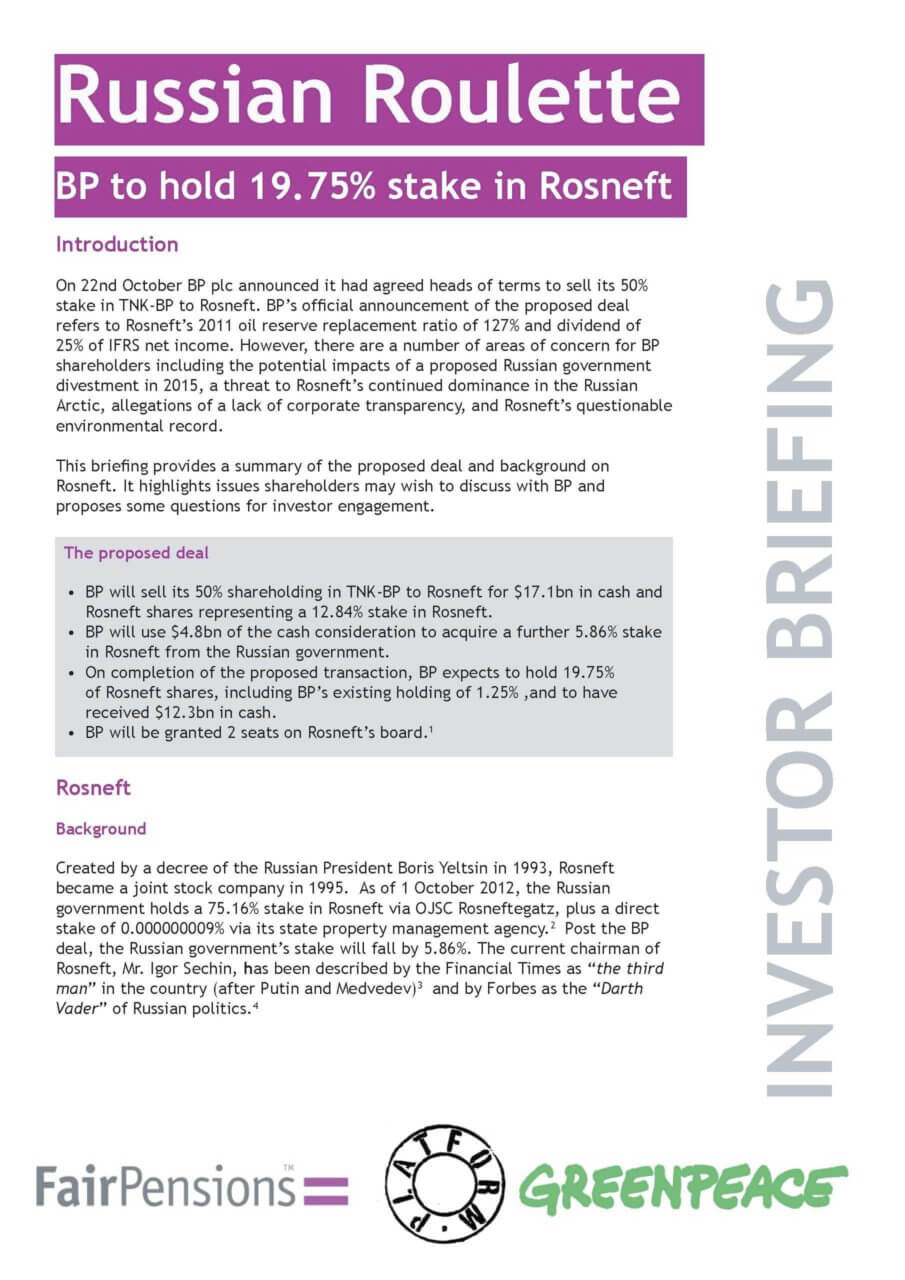Search
10 RESULTS
-
10 Mar 2022 jamesHail to the dockworkers! A Tale of Three Tankers – The Economic War, part 2
You can track them still on MarineTraffic.com … the MV Seacod, the MV Boris Vilkitsky and the MV Pearl. Three ghost ships of the energy system, the spirits of the Economic War. All three of these vessels broke out of the fog that normally swathes the constant trade in oil and gas. All three neared…
-
The Guns of Economic War – unpicking the decisions by BP to sell out of Russia
Far from the terrifying realities of the shelling of civilians in Kyiv, Kharkiv and other Ukrainian cities, far from the desperation of women and children trying to board trains for Poland, far from the sickening din of armour in the streets, the guns the economic war are firing. The bravery of Ukrainian citizens in resisting…
-
The Russian roulette: Rosneft, BP, and the unknowns of Russian politics
TNK-BP, the British giant’s 50% joint venture with a group of Russian oligarchs, was bringing in about quarter of the firm’s production, and a lot of its political problems. BP’s solution: swap its shares in TNK-BP for cash and a near 20% stake in Rosneft, Russian state-owned company run by Igor Sechin, one of Vladimir…
-
Russian Roulette – the BP and Rosneft deal
On 22nd October BP plc announced it had agreed heads of terms to sell its 50% stake in TNK-BP to Rosneft. BP’s official announcement of the proposed deal refers to Rosneft’s 2011 oil reserve replacement ratio of 127% and dividend of 25% of IFRS net income. However, there are a number of areas of concern…
-
Shell Security Spending Data Mapped on Guardian Data Blog
Platform and the Guardian Data Blog have mapped Shell’s global security spending for 2008. The graphic is based on leaked internal financial data. You can find Platform’s full briefing on this issue here.
-
Out in the Cold – new report on Shell’s plans in the Arctic
Shell’s Annual General Meeting tomorrow is unlikely to go calmly. The company’s problems range from anger over excessive executive pay to spills in the Niger delta. At this time, Platform, Greenpeace and FairPensions are putting to scrutiny offshore Arctic exploration as a key direction in the company’s strategy. The new report ‘Out in the Cold…
-
Out in the Cold: Investor Risk in Shell’s Arctic Exploration
Royal Dutch Shell’s plans for Arctic exploration are exposing investors to a ‘spectrum of risks’, this new report by Platform, Fairpensions, and Greenpeace warns. Download the report (pdf) and investor briefing or read online below. The report highlights Shell’s failure to address key concerns for investors and environmentalists: • Spill response plans are inadequate –…
-
7 Apr 2005 adminSakhalin II gas and oil project: Further Breaches of Equator Principles May 2004 – March 2005
In May 2004, 39 civil society groups, from 15 countries, warned commercial banks of extensive violations of the Equator Principles by the Shell-led Sakhalin II project. This update from 2005 finds that events over the past ten months show a deteriorating situation, constituting further violations.
-
The Sakhalin II PSA – a Production ‘Non-Sharing’ Agreement
Platform’s report reveals that revenue distribution for Sakhalin II between the Russian government and Shell’s consortium (SEIC) is set at a grossly unfair level. The contract terms, defined in a 1994 Production Sharing Agreement (PSA), place the Russian state at a significant disadvantage.
-
7 May 2004 adminPrincipal Objections: Analysis of Sakhalin II gas & oil project’s compliance with the Equator Principles
Shell’s Sakhalin II integrated oil and gas project fails to comply with the Equator Principles on responsible lending. The project on Sakhalin Island in Russia’s Far East will have severe environmental impacts, including threatening the critically endangered Western Gray Whale with extinction, damaging habitats of endangered bird and fish species, and polluting important fisheries.







